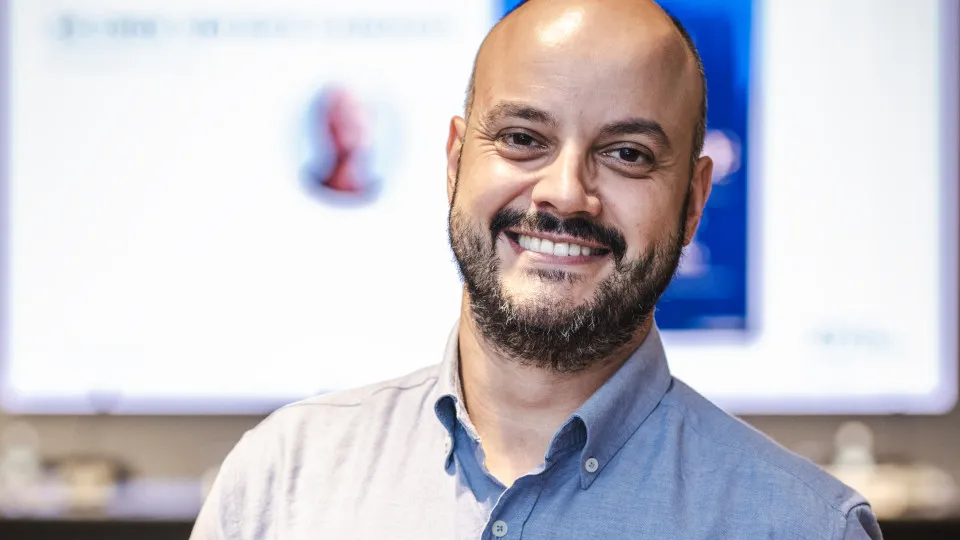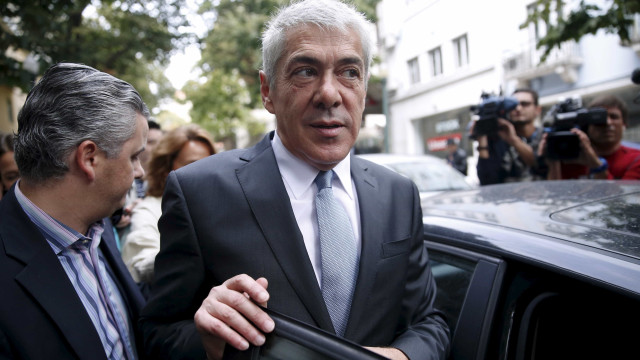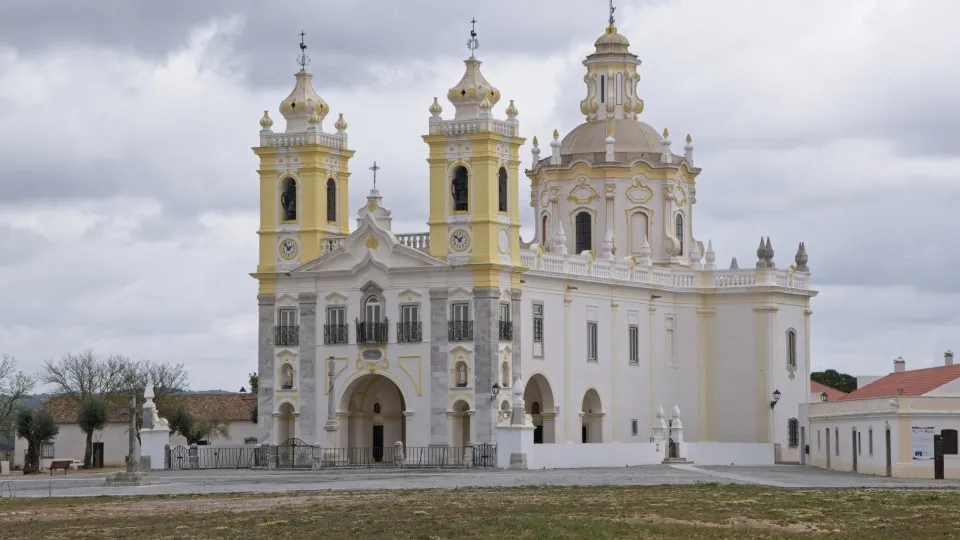
The relentless pace of modern life, work demands, and the omnipresence of screens and technology have turned exhaustion into a kind of silent epidemic, which most of us have grown accustomed to living with, yet it leaves us weary.
Nelson Nunes addresses the multiple sources of this widespread exhaustion in his latest book, “De Onde Vem este Cansaço?”, published by Contraponto. The book invites readers to a profound self-analysis.
Nunes, also a journalist and researcher in Culture and Communication, does not solely blame work for this fatigue. He illustrates how the accumulation of “micro-aggressions”—ranging from excessive artificial light and lack of sleep to the absence of boredom and screen dependency—creates an ecosystem that drains our vital energy.
Inspired partly by the simple lifestyle and circadian rhythm alignment of his grandfather Acácio, Nunes offers an integrated reflection, combining the experiences of experts with those who have faced challenges such as burnout.
In an interview with Notícias ao Minuto, Nunes discussed the current era of haste, the tyranny of constant demands, and the urgent need to reintegrate what our biology, shaped by millennia of human history, truly requires.
Having recently released “De Onde Vem este Cansaço?”, at one point you admit drawing inspiration from your grandfather Acácio. How did his experience make you reconsider your way of living?
Our grandparents, especially those living in rural areas, are living examples of how our ancestors lived: without demands, without rigid schedules, without obligations beyond survival and a peaceful life. I don’t want to romanticize poverty, as subsistence farming areas often face harsh circumstances, but there is value in some aspects of that lifestyle. Frequent visits to my grandparents’ village in Beira Baixa reveal a much slower pace compared to urban life where constant obligations and frantic acceleration prevail. My grandfather exemplifies a life that should, in some sense, guide us: adhering to circadian rhythms, avoiding rush, shunning artificial lights and screens, doing what is necessary within the body’s capabilities, and not forcing what biology cannot support. It’s no surprise he is a relatively healthy octogenarian.
What is, in your perspective, the ‘era of haste’ and how does it manifest in our daily lives beyond merely lacking time?
The key word is ‘demands.’ Many are systemic and external, others self-imposed. Here’s an explanation: the capitalist system geared toward production forces early risings, rushing morning routines, facing traffic, and arriving at work to address myriad requests and false urgencies. Leaving work late, we rush to collect kids, get immersed in screens, and when we finally rest, we collapse, exhausted on the sofa. Weekends differ little, filled with unpaid non-work (household chores, shopping, etc.). Screens contribute to self-imposed demands: activating reward circuits, they function almost like an addiction, leading us to cohabit with the phrase ‘I don’t have time’ while spending two, three, four or five hours daily on our phones. We must awaken from this trance, as feasible for each person, to live more meaningful lives without regret when approaching our final years on this planet.
Does the question in your book’s title [De Onde Vem Este Cansaço] ultimately get answered throughout the book?
Yes, definitely. The natural tendency is to think fatigue comes only from work: the book shows that while work is a significant factor in prolonged exhaustion, the ecosystem of our busy urban lives tires us through accumulating multiple micro-aggressions and disadvantageous habits: we need more leisure, should embrace a degree of boredom, prioritize sleep and exercise; our cities and homes shouldn’t be overly lit, and we need screen hygiene. Such measures will likely make our lives more enjoyable—and healthy.
Technology facilitates many aspects of our lives. However, when machines dominate humans, rather than the reverse, trouble arises
The synopsis claims this is not just another book on slowing down. What sets it apart from other works on the subject?
Literature about ‘slowing down’ often attributes an exclusive cause to our rapid pace. However, neuroscience reveals stress accumulation rarely arises from a single event, but rather an ecosystem of circumstances. My book attempts to provide an integrated explanation of the origins of our widespread exhaustion.
Regarding the “rat race.” How does this autopilot mode we engage to “survive” hinder truly living life?
I don’t believe most people intentionally inflict suffering on themselves. Primarily, populations gradually endure more weight, demands, and concessions. Acknowledging this lifestyle is half the battle toward change. A couple of years ago, in a book about death, I spoke with individuals at life’s end: none said, “I wish I’d worked more” or “spent more time screen-watching.” At life’s end, humans value connections, affections, and memorable moments. Disengage distractions and learn to say ‘no,’ as possible, for a more significant and impactful life.
In short, we were not made for this world, and exhaustion is merely a symptom of our biology’s misalignment with this constantly jolting world, invented just a few decades ago
About burnout, what is the real scope of the issue and why are so many Portuguese affected?
From experts and those affected, burnout often links to work but isn’t caused merely by excessive work: in fact, physical symptoms arise from constant exposure to stress peaks. Accumulating stress peaks disrupts the body, not genetically designed for overwhelming stress. For instance, cases exist where individuals are stuck at work with nothing to do, leading to stress from being immobilized, disturbing peace of mind, and undermining job-related identity. My book points to more varied prolonged stress sources than work: screens constantly demand attention, noise causes stress, as do vigilance obligations disrupting circadian rhythm, lack of downtime, or the inclusion of ‘third spaces,’ such as fun or focused tasks.
How does this digital omnipresence then drain our energy?
Preliminarily, I’m far from being anti-technology. I am not, and technology facilitates much of our lives. However, when machines control humans, not vice versa, trouble enters. We know excessive technology use activates nearly the same neural circuits seen in drug dependency. This should alert us to the attention-grabbing devices we carry daily. Simultaneously, more silent harm occurs: the amount of light from screens causes brain function disruption, affecting basic processes like sleep-wake cycles. Every new phone notification causes a small shock. When this happens dozens, hundreds of times daily, annually considered, we easily see this phenomenon’s impact, especially when comparing our lifestyle to humans’ multi-millennial genetic basis.
I believe the fundamental first step toward change is sincere self-analysis: what are my habits? What leads to disorientation, stress, dissatisfaction?
Leisure’s importance is generally acknowledged. However, boredom is often seen as a ‘bogeyman.’ What is the importance of boredom, and how can we reintegrate it amidst active lives seeking constant productivity?
Boredom’s benefits are explained through neuroscience’s insights, but a rationale might simplify this: over thousands of years, humans experienced brief stress peaks during hunts or social events, but life mostly passed without significant events, remaining slow and quiet. Given the brain evolved in such settings, it’s naturally better functioning with downtime interspersed with excitement. Today, we do the opposite: little calm, much demand.
The book incorporates people’s stories alongside experts’ experiences. Was there a particular story that deeply impacted you?
Many stories in this book are impactful, notably Laércio Albuquerque’s resilience in handling burnouts. Yet, the most striking story is Fernando Alvim’s chaotic schedule, aligning with my earlier point on burnout not directly equating to excess work: Alvim works over ten hours daily, yet his life’s blend of leisure and work makes it hard to separate the two. Enjoying his work reduces its stress impact. While not everyone can lead Alvim’s animated life, parallels and useful lessons exist for our lives.
All habits repeatable in the 18th century are ones humans are designed for; maybe that’s a useful guide for our daily lives
Your book invites us to “rethink life as we live it.” What should an exhausted reader do after finishing it?
I’m not someone to dictate how others should live, knowing each person has unique circumstances: who am I to tell someone to slow down or follow solar cycles, if my listener must wake at five to take seven public transports before cleaning offices? That said, I believe the first crucial step for change is sincere self-analysis: what are my habits? What causes disorientation, stress, dissatisfaction? With this book as a guide, one might find fitting solutions. But one thing is certain: the more one’s life aligns with the book’s advice, the more benefits will follow—not my words, but science’s and health experts’ words.
What changes have these reflections (and writing the book) brought to your life?
Above all, writing the book revealed some habits I had were subconscious responses to a need for change: playing guitar and tennis clears my mind and offers an escape from daily demands. I’ve created a boredom room at home, forbidding phones, where I simply exist or read lighter books. Socializing and dining with friends, comfortably and phone-free, is a cherished habit. Ultimately, all traditions replicable in the 18th century align with human design, providing a practical guide for modern life.




